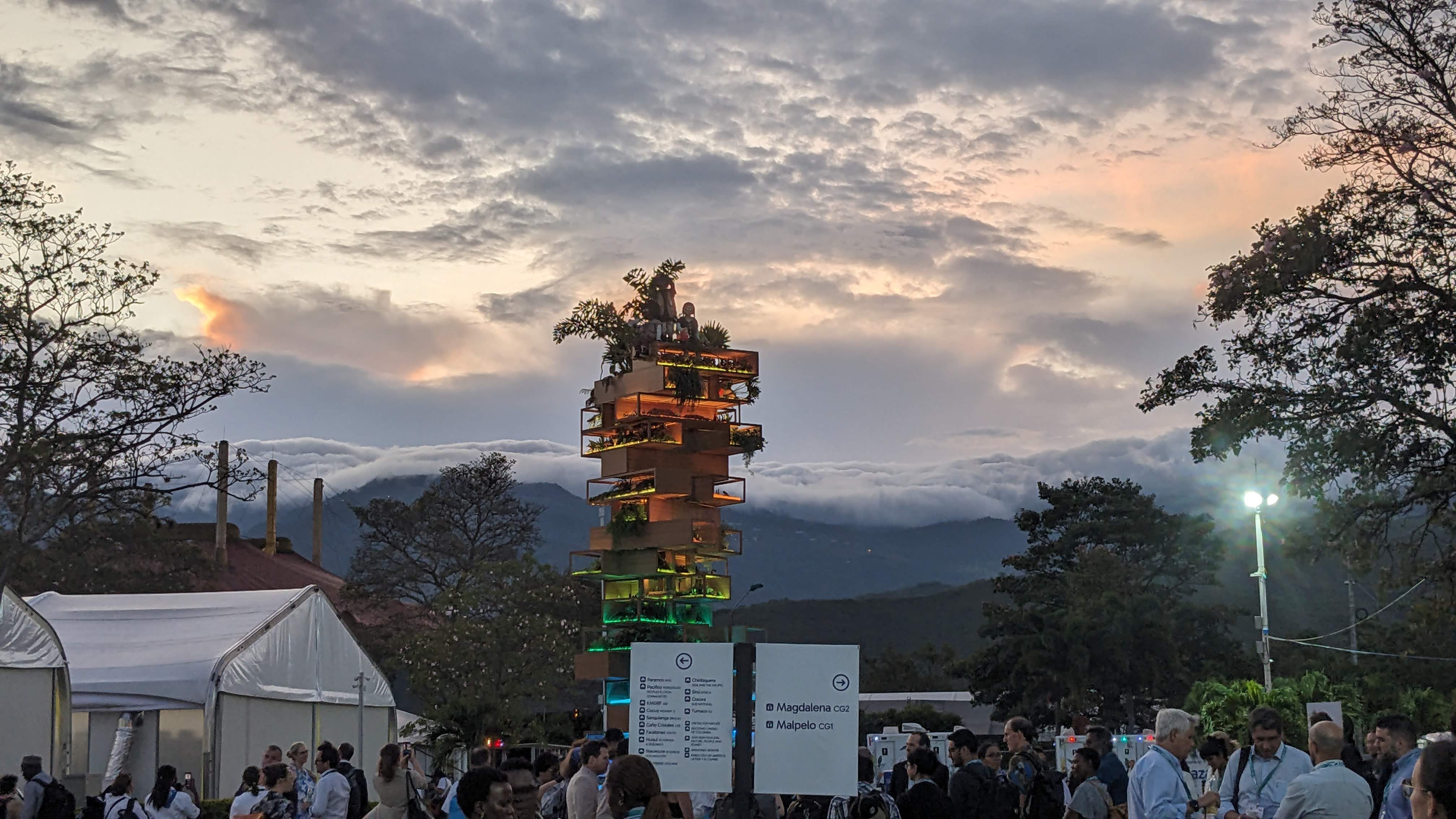It's time to prove our worth, and time is running out
At COP16 signatories to the Convention on Biodiversity are discussing how humanity can address the biodiversity crisis and meet the ambitious 2030 targets of the Global Biodiversity Framework. These include halting species extinctions, restoring 30% of all Degraded Ecosystems, and conserving 30% of land, waters and seas. But how do we measure our success or failure? How do we hold governments and the private sector to account?

Delegates at COP16 as clouds roll over the mountains
Conservation technology has demonstrated great potential to support biodiversity monitoring and, in combination with traditional methods, could meet some of the monitoring needs of the 2030 targets using the proposed indicators. However with parties to the Convention on Biodiversity developing national implementation plans now, and capacity building already starting, we need to act quickly.
The conservation technology community is made up of some of the smartest, most collaborative, most passionate people I have met. Being around this group at COP16 felt like being amongst the Avengers; a dream team of computer scientists, communicators, community builders, and innovators.
And yet it feels like 'Avengers: Endgame'. Our band of heroes are using their unique skills and gadgets to provide solutions but Thanos seems poised to snap his fingers and vanish our biodiversity despite our efforts.
During discussions at COP16, conservation technologists took turns introducing familiar challenges that many of us have discussed multiple times before (‘Where do we store the data?’, ‘We need standards’, ‘AI produces lots of C02’, etc.). A semi-ritualistic confession, a chant to the sky asking not for rain, but for someone to take our data/compute/integration challenges away.
We need to move rapidly towards solutions to these challenges so that we can get end-to-end solutions in the hands of conservation practitioners.
We should focus on technologies that are able to meet the global-scale of the monitoring challenge ahead; i.e., they need to be cost-effective, easy to use, and provide reliable and actionable data. We need to be proactive in getting tools into the hands of practitioners. While they wait, biodiversity declines, species go extinct, and we miss out on data to hold governments and the private sector to account.
We need to put down our 5-year visions and pick up our 2-year action plans.
Of course many members of this community have already produced solutions that are having an impact on the ground. Building on this experience, our community can overcome all of the challenges put in front of it: data standards, data storage, translating data to information, data integration, turning proof of concept to field reality. We have wisdom in our crowd.
We all have a responsibility to help our international, national, and local stakeholders gain access to the wisdom in our community, helping them to get advice and to find monitoring solutions that most effectively meet their needs.
Together we have the skills and experience to do all of these things, while as individuals, even as teams in isolation, we may struggle.
It's time to prove our worth, and time is running out.





Add the first post in this thread.